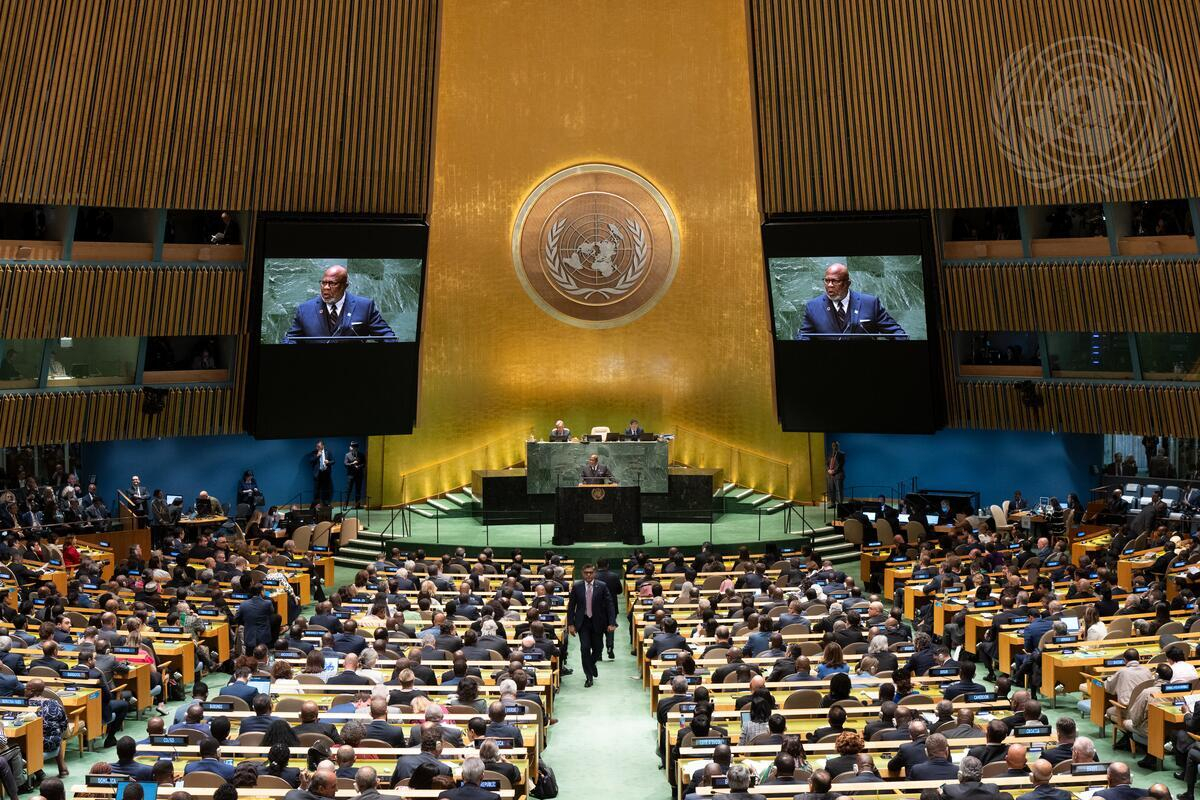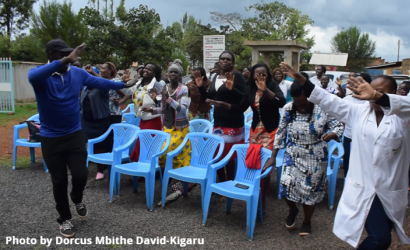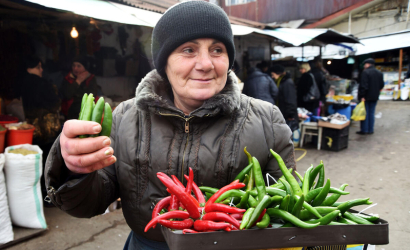During a busy New York week, food and nutrition were common threads running through the 78th session of the UN General Assembly (UNGA), the SDG Summit and high-level meetings on Universal Health Coverage (UHC) and Pandemic Prevention, Preparedness and Response.
Kicking off with the SDG Summit, UN Secretary Genergal- António Guterres, reminded us that the SDGs are about “hopes, dreams, rights and expectations of people and the health of our natural environment”. With progress offtrack to meet the 2030 SDG Agenda, the resulting political declaration (A/78/L.1) reaffirmed global leaders commitment to end hunger and improve nutrition while the Sustainable Development Report identifies sustainable food systems and healthy nutrition as a key entry point for transformation to accelerate progress towards the 2030 SDGs.
This commitment to improve nutrition and accelerate action was echoed through the political resolutions on Pandemic Prevention, Preparedness and Response (A/78/L.2) as well as the declaration on UHC (A/78/L.3)- which recognizes the need for adequate nutrition and diverse, nutrition-sensitive food systems to end malnutrition, and commits to strengthen multi-sectoral action and policy to achieve this vision. Statement summaries from the UNGA General Debate show that while just four countries made mention of nutrition within the, 71 mentioned food during the General Debate- largely in reference to the impact of conflict and climate on food security, and the need to transform food systems.

Integrating Essential Nutrition Actions into Universal Health Coverage
In support of official proceedings, UN-Nutrition was proud to partner with the SUN Movement and WHO, to facilitate the ‘Integrating Essential Nutrition Actions in Universal Health Coverage’ side event. The event brought together government representatives from Bangladesh, France, Ghana, Japan, Indonesia and the UK as well as nutrition leaders of Amref Health Africa, Helen Keller Intl and Nutrition International. Each shared their experiences, successes, opportunities and challenges in the integration of essential nutrition actions into universal health coverage. Echoing through the event was the universal agreement that the Essential Nutrition Actions provide a focused guide on what health systems need to achieve the health and economic benefits of eliminating malnutrition in all its forms. This was coupled with the shared concerns that current progress on their implementation is too slow, with the resounding need to strengthen dedicated financial investment for nutrition, workforce capacity and political commitment to accelerate country led implementation. It also highlighted powerful advocacy tools, such as Nutrition Investment Cases, Youth Advocates, community ownership and strong data which can utilized to progress the commitment to improved nutrition within the UHC resolution.
Recognize that food security and food safety, adequate nutrition and sustainable, resilient and diverse nutrition-sensitive food systems promote healthier populations and are important elements to address malnutrition in all its forms, while reaffirming that health, water and sanitation systems must be strengthened simultaneously to end malnutrition…
We commit to scale up our efforts…Strengthen multisectoral action to promote active and healthy lifestyles, including physical activity, ensure a world free from hunger and malnutrition in all its forms, and promote access to safe drinking water and sanitation and hygiene services and safe, sufficient and nutritious food and enjoy adequate, diversified, balanced and healthy diets throughout the life course…
Nutrition and Climate- from Intertwined challenges to joint solutions
During Climate Week NYC, held in partnership with the UNGA, the Pre-COP Food Day held on September 20th helped raise the profile of food systems transformation in providing joint solutions to two of the world's greatest, intertwined challenges- climate change and malnutrition. Facilitated by the Global Alliance for the Future of Food, The Rockefeller Foundation, and WWF, in collaboration with media partner Food Tank the day featured special sessions on the role of UN agencies in raising the ambition on transformative actions, financing inclusive and place-based innovation, and paving the way for greater government leadership ahead of COP28. Bringing together food systems leaders and visionaries, including UN-Nutrition, organizers also facilitated six action labs exploring regenerative agriculture and agroecology, people & food, aquatic & blue foods, energy & food, nature & food & finance and health & nutrition – all culminating in a joint call to action by non-state actors ahead of COP28. One key action shining through the action labs for its potential to drive forward nutritious, equitable and climate friendly food systems transformation was the unmet potential of public procurement. This message was further championed during the special side event ‘Public Food Procurement to Meet New York City’s Climate Goals’, organized by the Mayor’s Office of Food Policy in New York City, Colorado State University Food Systems Institute, The Rockefeller Foundation and the Foundation for Food and Agriculture Research, and moderated by UN-Nutrition’s Executive Secretary, Stineke Oenema. The event showcased the potential of public procurement programmes for climate action and nutrition as demonstrated in Copenhagen and New York, as well as launching New York Cities Greenhouse Gas Emissions Inventory, Food Forward NYC plan and the Good Food Purchasing program which aim to reduce green house gas emissions from food purchases by 33% in 2030.
Outcomes of the UNGA reaffirm the centrality of nutrition to achieving the 2030 SDG agenda, and the resulting political declarations provide a springboard for accelerated action to end malnutrition in all its forms.



